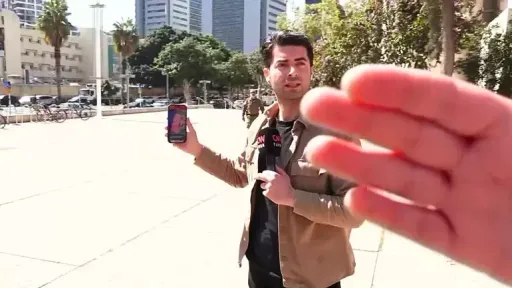He was poetry in motion. The art of ballet combined with the predatory instinct of a lion.
He was, no doubt, the "double greatest."
Muhammad Ali is dead at the age of 74 after a three-decade battle with Parkinson's, a disease which transformed the image of one of the world's greatest, straight-shooting fighters into a man revered for his calm, saintly demeanour.
Ali transformed the sport of boxing from what was traditionally viewed as a slugfest to a spectacle with great highs and lows, where now even the interviews are taken into account when measuring up a contest.
Before the Tysons, the Mayweathers, the Pacquiaos and the golden boys, there was the Fight of the Century, Thrilla in Manila, the Rumble in the Jungle and Ali was the box-office.
His career, which was born by an urge to "whup" the person who stole Ali's bicycle when he was just 12, became a symbol of courage and hope.
His 56 wins, 37 knockouts and five losses are mere numbers for the record books, for Ali's impact transcended the ring, geographical and religious boundaries and made him the most recognisable man on the planet.
"Supremely confident"
Born Cassius Marcellus Clay Jr. on January 17, 1942, in Louisville, Kentucky, he had boundless energy and a flair which set him apart even as a young boy.
Cassius Marcellus Clay Sr. was more inclined to music then fist-fighting, and perhaps that's where Clay Jr. developed his characteristic rhythm in the ring.
But it was his mother Odessa Grady Clay who shared her son's passion for boxing ever since the 12-year-old was put on that path by the policeman who heard the bike robbery case from the boy's mouth.
The police officer, Joe Martin, took him under his wing in 1954 and trained him at his gym. Six months later, the fast-moving boy had won his first amateur bout.
According to Martin, Clay had an intense work ethic right from the beginning.
The Golden Gloves title in 1959 and a budding reputation propelled him into the United States 1960 Olympics squad at the age of 18.
At the Games in Rome, Sports Illustrated described him as a "supremely confident" fighter, who was dubbed the "Mayor of the Olympic Village."
He would go on to win gold in his big-stage moment by defeating three-time European Champion Zigzy Pietrzykowski of Poland in the light heavyweight division final.
Clay's performances at the Olympics, telecast live around the world, piqued the interest of several Kentucky businessmen, and he was signed to a contract the same year.
A move to Florida followed, and Clay would link up with trainer Angelo Dundee at the Fifth Street Gym in Miami for the start of a legendary partnership. Dundee would be in Ali's corner in all but three of his 61 pro fights.
"Ali could go all night. Where he got his reserves from I don't know. But he always had those reserves. He was a little bit special. One time I saw him get decked in sparring. He got whacked on the chin, but as soon as his butt hit the canvas he woke up, and he got up. I knew then I had a great fighter to work with," Dundee said in an interview with Boxing News in 2011.
From Clay to Ali
Four years later, at 22, Clay earned his first shot at the world heavyweight title against Sonny Liston. Liston was considered the favourite by a long shot against an outsider who could 'talk'.
Clay had predicted a seventh-round win, and Liston retired in the seventh after being run ragged by his lightning-fast opponent. This started the tradition of Ali predicting when exactly he would beat his opponent.
Clay converted to Islam soon after and became Muhammad Ali. He was still floating like a butterfly and stinging just as hard as a bee, but the change would spark a political and social consciousness in Ali.
His outspoken remarks about race, inequality and religion, landed him on the wrong side of the conservatives in the US. His legend, however, continued to grow and by this time Ali was a household name around the world.
But in 1966, when Ali refused to serve in the Vietnam War on religious grounds, he was stripped of his world title and barred from boxing for three years. The US Supreme Court overturned the conviction for refusing to serve in the armed forces in 1971.
He was 25 when barred and 28 when allowed to fight again and some commentators believed Ali was robbed of his prime. But the exiled champion returned to the boxing arena with a hammering win over Jerry Quarry on October 26, 1970.
"I'm just glad to be back to clear up this mess," Ali was quoted as saying by New York Times.
"Three rounds wasn't enough for me," he added while fixing his sights on then-world heavyweight champion Joe Frazier.
"Fight of the Century"
Ali got a shot at Frazier on March 8, 1971. The fight was hyped up as the biggest event, an encounter which would pit an exiled king with the man on top of the boxing world.
"The showdown between Ali and Frazier was the only fight that mattered and the participants were each compensated with a guaranteed purse of $2.5 million, a record at the time. The Garden was sold out a full month before the fight and ringside tickets were going for a record $150," an International Boxing Hall of Fame report about the fight says.
Ali was portrayed as the draft-dodging villain, while Frazier was propped up as the 'conscientious, blue-collar champion.'
But inside the ring, both men fought like warriors over a gruelling 15 rounds. All participants in the match, the fighters, the trainers, the officials and even the broadcast team were inducted into the Boxing Hall of Fame. It was accurately billed the "Fight of the Century."
Ali displayed the guile of a veteran and combined it with fast feet and lightning jabs and truly tested Frazier. But it was the champion, without the rust of three years of inaction, who fell Ali in the 15th round with a thunderous left hook.
Ali, summoned all his strength, to get up off the mat and amaze the world, but lost the fight on points.
In a rematch in 1974, Ali would exact his revenge.
The famous Rumble in the Jungle against George Foreman in Kinshasa, Zaire (now Democratic Republic of Congo) followed some months later.
Ali, 32, employed his rope-a-dope technique to wear down his 25-year-old opponent and finished Foreman off with a heavy right-handed blow and regain the world heavyweight title.
A third encounter, dubbed the Thrilla in Manila, against Frazier came after Ali retired briefly.
Frazier was defeated yet again and there were a couple of more instances of Ali retiring and then returning to boxing, but the great man finally walked away after pressure from family and friends at the age of 39 in 1981.
The countless rounds of fighting had taken a toll on Ali and he was diagnosed with Parkinson's in 1984. He continued to battle on.
By this time, Ali was well and truly a world figure and he was so admired that in 1990, he helped secure the release of American hostages from Iraq before the Gulf War.
At the 1996 Atlanta Games, he lit the Olympic flames amid loud cheers from the crowd, a sign the once vilified boxer was completely embraced as a hero at home.
He had done and seen everything.
In his own words, "I have wrestled with an alligator. I done tussled with a whale. I done handcuffed lightning, throwed thunder in jail."
In 2002, the United Nations appointed Ali the 'messenger of peace' on a goodwill visit to Afghanistan and in 2005, Ali was awarded the Medal of Freedom by US President George W. Bush.
He mostly maintained a low profile, turning up for charity functions and venturing out only for therapy.
Ali is survived by his wife Yolanda Williams and nine children, including Laila Ali, who followed in her father's footstep to become a boxing world champion.
Ali's 'wisdom'
On his languid approach in the ring
"Float like a butterfly, sting like a bee."
On his profession
"It's just a job. Grass grows, birds fly, waves pound the sand. I beat people up."
On his personality
"At home I am a nice guy but I don't want the world to know. Humble people, I've found, don't get very far."
On his superiority
"I'm so mean, I make medicine sick."
"I'm not the greatest. I'm the double greatest. Not only do I knock 'em out, I pick the round. I'm the boldest, the prettiest, the most superior, most scientific, most skillfullest fighter in the ring today."
"If Ali says a mosquito can pull a plow, don't ask how. Hitch him up!"
On his global appeal
"I'm the onliest person that can speak to everybody in the whole world. My name is known in Serbia, Pakistan, Morocco. These are countries that don't follow the Kentucky Derby."
On his 'wisdom'
"Sometimes I feel a little sad because I can see how some things I said could upset some people. But I did not deliberately try to hurt anyone. The hype was part of my job, like skipping rope."
On Parkinson's
"Now the things that once were so effortless - my strong voice and the quickness of my movements - are more difficult. But I get up every day and try to live life to the fullest because each day is a gift from God."























